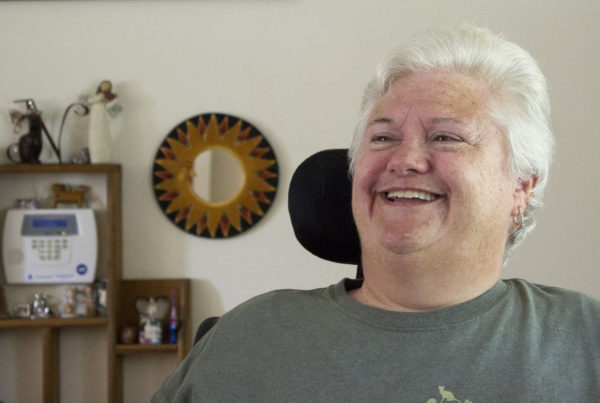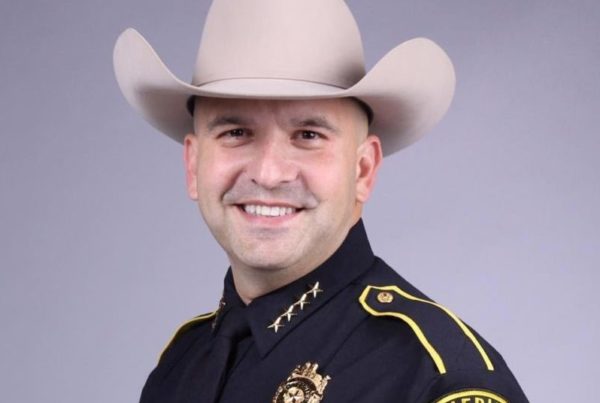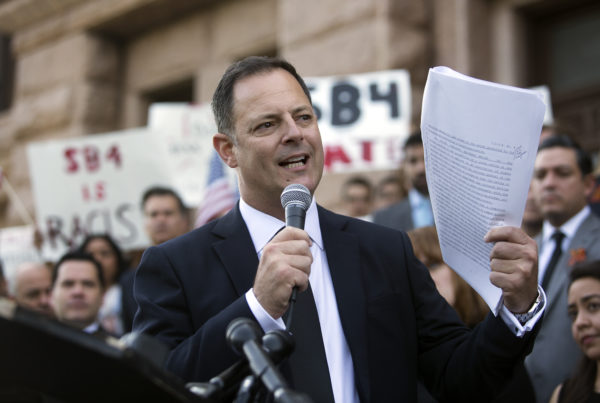It’s a question many parents face: Where to turn for child care?
There are day care centers, but some parents go the nanny route. And as we’ve found, some of those parents are surprised to discover that nanny care is an unregulated industry in the state of Texas.
Emma Robinson is working mother of two. Her family uses a day care, but the center runs on the Houston school schedule.
“My husband and I work full time, and we don’t have enough vacation days to take off every day they close,” she says.
For backup care, the family hired a nanny to come to their home. It was mostly fine, but one day Emma says their younger daughter apparently fell from her high chair, scraping her face.
Robinson was worried and started looking for just who regulates nannies.
“I was really surprised to find that CPS couldn’t do anything. That’s where I first turned to… thinking they protect children,” she says.
Robinson learned that the state agency that includes Child Protective Services doesn’t regulate nannies in private homes. She then turned to law enforcement, but got nowhere.
“We’re stuck because I’m basically in a corner where nobody can help me…. And I think it’s really important for Texas to regulate nannies,” she says. “I fear that nothing is going to change in this issue until something terrible happens.”
Robinson said it appeared to her that nanny agencies are basically self-regulating.
“They’re the gatekeepers,”Robinson says. “That, to me, is scary.”
But some nanny agencies say they do aggressively self-regulate.
Michelle LaRowe is the executive director at Morningside Nannies, an agency in Houston. She says their rigorous, self-imposed regulations mean that only two of every ten prospective nannies pass screening tests.
“Because there’s no regulations in place, we choose to set ourselves to the higher standard,” LaRowe says. “Someone who has been in this industry for more than half of my life, I have seen the good, I have seen the bad, I have seen the ugly.”
So has Chioma Johnson. She is a child care licensing supervisor at the Texas Department of Family and Protective Services.
“Even in day care center, and a daycare home, things happen, but there’s also regulation. And there’s at least someone to come in, and investigate, and make sure it doesn’t happen again,” she says. “In a nanny situation, all you have is the law and the law is written very loosely…. But typically when things change, it’s because something happened…. That would be the only way I can see regulation happening for nanny agencies.”
Christina Triantaphyllis is the chief officer of public policy and strategic initiatives at Collaborative for Children, a non-profit that advocates for kids. She says she hasn’t seen any good data or reports on the state of nannies in Texas, and analysis would be an important step before implementing regulations.
“Understanding where the gaps are that this regulation would be filling would be a good place to start,” she say. “What are nannies experiencing, and what would they need to function and provide a better service? And what parents, who look for nannies or who use nannies, see as the big gaps?”
Chioma Johnson, with the state agency, says no matter what type of care you choose: be vigilant.
“You have to ask questions. You can’t take things for face-value, now with your child,” she says. “Ask if you have first aid, CPR training. What type of training do you have? What type of background do you have?”
Johnson also recommends asking for references, background checks, and checking how thorough the nanny agency’s background checks are. She says it’s also helpful to ask for a nanny agency’s plan-of-action, for when issues arise.
“Do they have training in child abuse and neglect, how to recognize child abuse, and how to report it?” Johnson says.
Robinson, the mother of two, is concerned that a nanny’s negligent behavior might not be revealed in a routine background check. She’s worried what it will take to bring change.
“Some horrible thing will have to happen for lawmakers to take notice,” she says. “And it shouldn’t’ have to be that way. We should be able to make these changes proactively and look and say this is not safe.”
Click here for Collaborative for Children’s child care search tool. The group has also compiled a list of steps and a checklist when searching for child care providers (some, of which, can also be applied to nannies).
Care.com has compiled a comprehensive list of nanny-specific questions; even a list of questions you are not allowed to ask.
The state maintains a database of licensed child care operations. And while nannies in private homes are not licensed, the state of Texas regulates the child care operations that are on this list. State officials recommend utilizing regulated care, and have more information and tips.
According to Collaborative for Children, only four percent of Harris County child care centers are nationally accredited by the main accrediting bodies. Texas Rising Star is a voluntary state quality-rating and improvement system for child care providers.

















